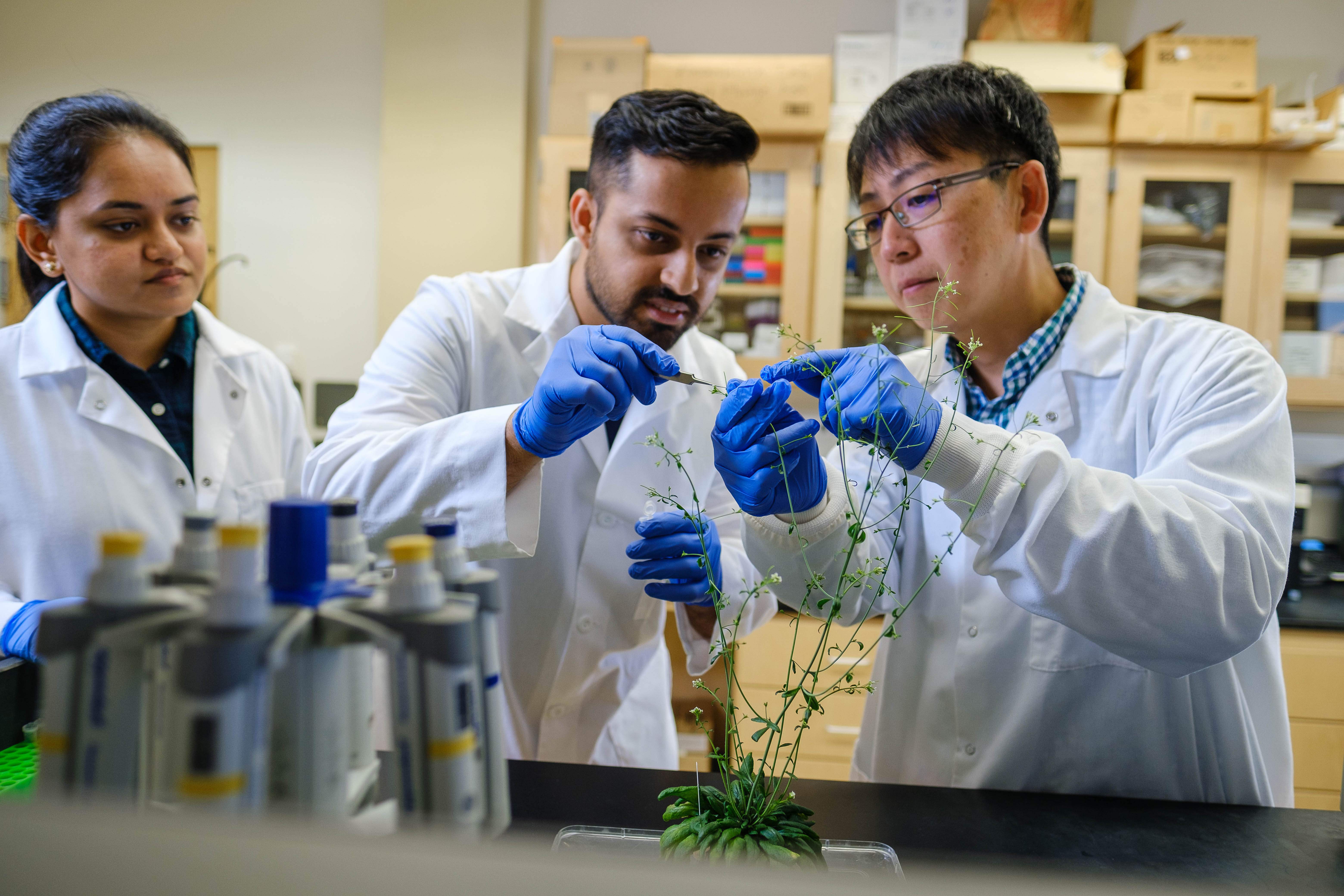University of Kentucky gene study paves way for agricultural advancements
University of Kentucky gene study paves way for agricultural advancements


The University of Kentucky Martin-Gatton College of Agriculture, Food, and Environment is working to uncover the mysterious world of gene-silencing in plants. Thanks to this research, scientists may develop more effective ways to improve crop yields, increase resistance to pests and diseases and reduce agriculture’s environmental impact.
Exploring the intricate molecular processes that control this pathway, their findings, now published in The Plant Cell, may have significant implications for genetic engineering and agriculture.
“By further understanding how plants regulate genes, we will be able to control when, how strong, and what genes become active,” said Tomo Kawashima, UK Department of Plant and Soil Science associate professor.
Kawashima and his team made an interesting discovery: transgenes, which encode proteins with no specific cellular localization, undergo gene silencing in Arabidopsis thaliana sperm cells. They also found this phenomenon happens even in plants genetically altered with known genes which cause silencing pathways.
“What we found is a new gene silencing pathway,” Kawashima said. “We mutated the genes responsible for the previously characterized known gene-silencing pathway to check whether our newly identified gene silencing still occurs and indeed it still happens. This is significant as we concluded that this is the new gene silencing pathway different from the rest.”
Kawashima said that while this may seem like a small finding, it has significant implications for understanding gene expression and regulation.
“Genetic studies have come a long way in recent years, and with it, the ability to engineer genes and create improved traits,” he said. “However, scientists still need to learn more about how genes are regulated and expressed, particularly in complex organisms like plants.”
Kawashima said this could become important for agriculture.
“Genetic engineering relies on the expression of transgenes, and these transgenes often get silenced, which we do not fully understand. Therefore, our discovery will pave the way for solving transgene silencing and thus more efficient genetic engineering for sustainable agriculture.”
Research reported in this publication was supported by the National Science Foundation under Award Number 1928836. The opinions, findings, and conclusions or recommendations expressed are those of the author(s) and do not necessarily reflect the views of the National Science Foundation.
– 30 –
The Martin-Gatton College of Agriculture, Food and Environment is an Equal Opportunity Organization with respect to education and employment and authorization to provide research, education information and other services only to individuals and institutions that function without regard to economic or social status and will not discriminate on the basis of race, color, ethnic origin, national origin, creed, religion, political belief, sex, sexual orientation, gender identity, gender expression, pregnancy, marital status, genetic information, age, veteran status, physical or mental disability or reprisal or retaliation for prior civil rights activity.
Research
